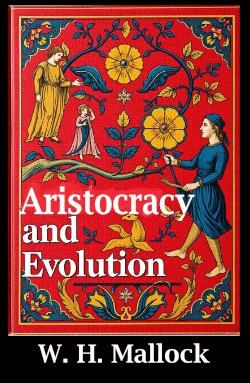Aristocracy and Evolution: A Study of the Rights, the Origin, and the Social Functions of the Wealthier Classes
By W. H. Mallock
W. H. Mallock’s Aristocracy and Evolution: A Study of the Rights, the Origin, and the Social Functions of the Wealthier Classes stands as one of the most articulate and unapologetic defences of aristocracy produced in the late Victorian period. First published in 1898, the book emerges at a moment when Britain’s traditional ruling classes were confronting profound social and political changes: the extension of the franchise, the rise of organised labour, the spread of socialist ideas, and the increasing challenge of scientific modernity to long-standing moral and political assumptions. Mallock’s project is, at one level, a restatement of conservative principles; yet it is also an attempt to reframe aristocratic privilege in terms of contemporary scientific thought, particularly evolutionary theory. In doing so, he sought not merely to justify inequality, but to explain it as a necessary and even beneficial feature of social organisation.
Ultimately, Aristocracy and Evolution can serve both as a caution and a provocation in today’s political debates. For those wary of concentrated power, it warns that some degree of hierarchical leadership may be inescapable if societies are to function effectively. For those inclined to defend elites, it insists that legitimacy rests not on birth, wealth, or even innovation alone, but on demonstrable contributions to the public good. The intersection of these insights with the populist critique of unaccountable power yields a more demanding standard for leadership than either side often admits. Mallock’s Victorian defence of hierarchy thus becomes, in our time, a challenge to reimagine what responsible, capable, and accountable leadership might look like in an age when the very concept of authority is under strain.
That such questions remain unresolved more than a century later is a testament both to the durability of the problem and to the unsettling clarity with which Aristocracy and Evolution poses it. Whether one accepts Mallock’s conclusions or disputes them, the book demands that we consider, without sentimentality or evasion, the relationship between talent and power, and the terms on which society should entrust its future to the few who will inevitably shape it.
Read-Me.Org Inc. New York-Philadelphia-Australia. 2025. 195p.


